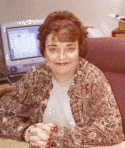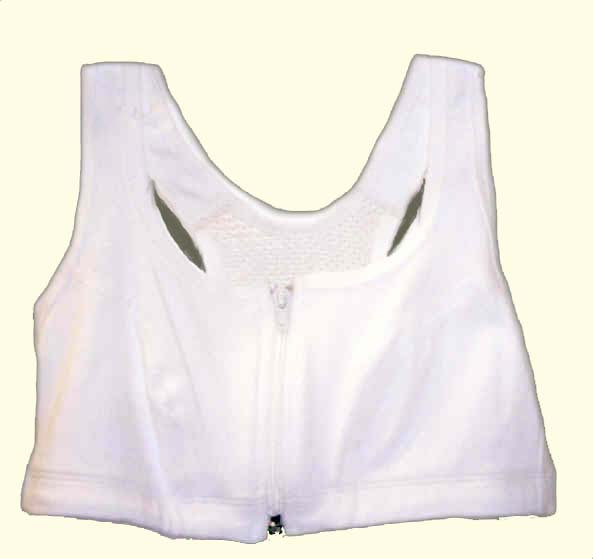












          |
   |

|
Up until age 38, Robin didn't know she had a serious heart problem. Other than an
occasional episode of rapid heart beat, she had no symptoms. |
Robin and her husband, Jonathon, had two healthy boys with no complications during her pregnancies. Robin maintained a very active social life.. played golf, did the gardening and had to keep up with her two young sons. But then, one day, while driving to pick up one of her sons from baseball practice, she lost consciousness behind the wheel of her car. Luckily, no one was hurt, but that's when Robin was diagnosed with a congenital atrial septal defect and Wolfe Parkinson syndrome - an electrical disturbance in which extra signals are released from the heart wall, causing it to beat erratically. Correcting these two congenital problems resulted unexpected complications that required three open–heart operations within a thirteen-month period. Robin became an expert, of sorts, on surviving risky open–heart surgery. This is her story.
“I was well prepared for the first surgery. It was an elective procedure. Since it was planned, I had plenty of time to prepare myself and my family. The surgeon explained the procedure to me and I had confidence in his level of skill and the hospital's reputation for delivering the best care.
“The first part of the operation, the surgeon planned to remove certain areas of my heart that were transmitting extra electrical signals. The second part involved entering into the heart itself to repair the opening between the upper chambers.
“Everything went well during the surgery, but, immediately after the operation, I went into congestive heart failure. By repairing the opening between the upper chambers of my heart, it created a difference in pressure and this caused my heart valve to rupture while in the recovery room. Although the surgeon wanted to re-operate immediately to replace the ruptured valve, this was not recommended by the surgical team as I was too weak. They decided to postpone the second operation for 6 weeks so that I would have a better chance to survive.
“I was in critical condition and extremely ill in the intensive care unit for the entire 6-week period. I was psychologically drained, being bombarded with emotions in response to this failed surgery. I felt angry, frightened and disappointed but mostly I felt let down because my own body had failed me. Why me?
“Six weeks had passed and I underwent a second open–heart operation. It seemed the second operation was a success. I had a new valve installed and I resumed all of my busy activities - but then, after a few months had passed, I began, once again, to experience recurring symptoms of heart disease -- rapid heart rate with dizziness and weakness. I knew it was not from anxiety as I had learned to practice yoga so that I could sort out what was emotions and what was a symptom coming from my heart. Further testing showed that the valve had become unseated. Once again, I was faced with a serious heart problem. In spite of the cardiologist's best efforts, I couldn't be stabilized on the medicines, and so I asked the doctor to operate once more.
“I was not enthused or ready to undergo a third surgery, but I realized it was necessary. I had set out a plan this time to stay in control as much as I could. I felt the need to maintain some sense of control and normalcy. I made a conscious decision to be involved, remain “in charge” and to take a more active role. I discussed all medical decisions about my heart with my doctor. I asked the dietary department to deliver an extra dinner tray so that my husband and I could have our evening meal together (We ate by candlelight). I convinced the doctor to give me a day-pass so that I could get my hair done. All of these actions may seem insignificant, but they helped me survive.
“ I was feeling very sorry for myself while awaiting the surgery and became introverted with the prospect of undergoing a third open-heart operation within such a short time! The staff was concerned that I was depressed, but this just the only way that I knew how to cope.
“The third surgery took place just eleven months after the second. This time, I experienced no complications. That was seven years ago and today, I enjoy an active, healthy lifestyle. I play golf, I swim and I tend to my garden. I am grateful to be here with a loving husband and two beautiful sons. Someday, I will even be a grandmother! I discovered that I have an important mission in life: to help young people survive heart disease and heart surgery. ”
Questions to Ask Before You Have Heart Surgery (pdf format)
 Wearing a front-closure sports bra
may enhance comfort post-operatively. J.C. Penney has a good assortment to choose from.
Wearing a front-closure sports bra
may enhance comfort post-operatively. J.C. Penney has a good assortment to choose from.
Articles |
Newsletters |
Recipes |
Women's Stories |
Press Releases |
Wellness Calendar
Back to top
Disclaimer | Donate Now | Contact Us | Site Map | Store
|
©1999-2000; updates: 2002, 2004, 2005, 2007 Women's Heart Foundation, Inc. All rights reserved. Unauthorized use prohibited. The information contained in this Women's Heart Foundation (WHF) Web site is not a substitute for medical advice or treatment, and WHF recommends consultation with your doctor or health care professional. |